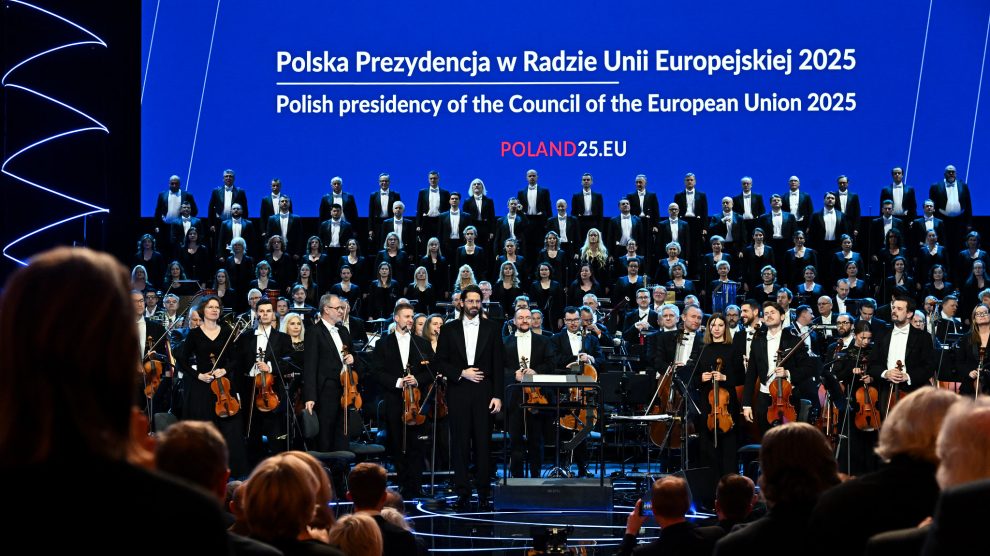Hungary’s presidency of the Council of the EU made enlargement a dirty word. Poland needs to make it not just acceptable again, but essential.
Outlining Poland’s priorities for its six-month stint as President of the Council of the EU, which began on January 1, Foreign Minister Radosław Sikorski last month made it clear that enlargement of the European Union to the East and the South would receive the “proper” attention.
“Our goal is to make progress in relation to Ukraine, Moldova, as well as the Western Balkans,” he said. “Progress in the accession process should be commensurate with the involvement of EU candidate countries. Furthermore, the Polish presidency will support the pro-European aspirations of the Georgian society. We count on the reversal of the anti-European trend that was imposed on Georgia by the Georgian Dream party, which came to power following parliamentary elections of dubious standards.
“We would also like the European Union and Türkiye to take concrete steps towards a rapprochement. Türkiye is our very important, strategic partner, not only in matters relating to security, but also economy.”
Enlargement is not a dirty word
Hungary, which held the presidency in the second half of 2024, mostly ignored the question of enlargement. An EU-Western Balkans Summit in December all but made enlargement a dirty word. There was talk of ‘integration’, ‘partnership’, and ‘engagement’ but no mention at all of enlargement.
Poland needs to ensure the word once again becomes acceptable in the corridors of Brussels. The countries of the Western Balkans (and Ukraine and Moldova) need clear roadmaps to full EU membership (and timetables) that go well beyond accession talks; Serbia began accession talks a decade ago and yet is as far away from EU membership now as it was then.
No country has benefitted more from joining the EU than Poland, which last May celebrated two decades of membership. From 2004 to 2019, Poland’s GDP more than doubled, supported by EU funds that contributed to infrastructure projects, enhancing both rural and urban development.
An alternative to Russia
More than anything else, however, the EU can offer a counterbalance to Russia’s malign influence in Eastern Europe. By integrating countries once occupied by Moscow, the EU can present an alternative that aligns more closely with Western values and economic systems.
But for that to become more than rhetoric, the EU needs to act now. Its hitherto poor record in the Western Balkans (Serbia is just one of five countries from the region which has received candidate status but has made little progress towards actual membership) does not bode well for further enlargement.
Poland must not waste the opportunity to begin driving a new wave of expansion based on its own positive experience.
Photo: © Polish Presidency of the Council of the EU 2025.
If you would like to discuss Poland’s presidency of the Council of the EU further, and what it means for business and investment, get in touch to schedule a call with one of our analysts.

